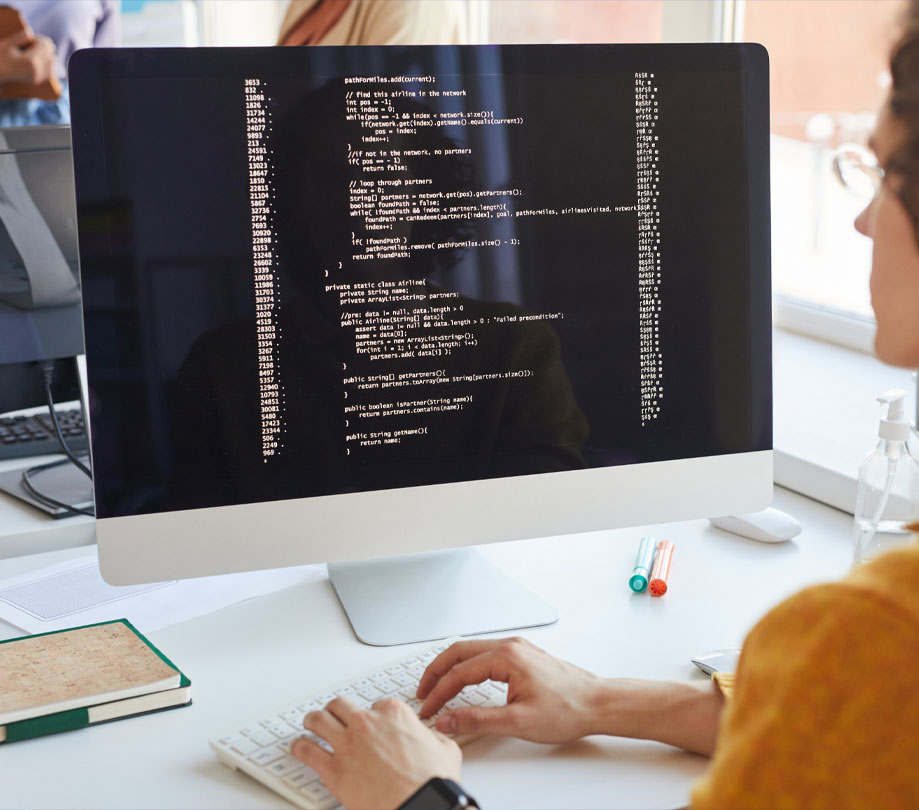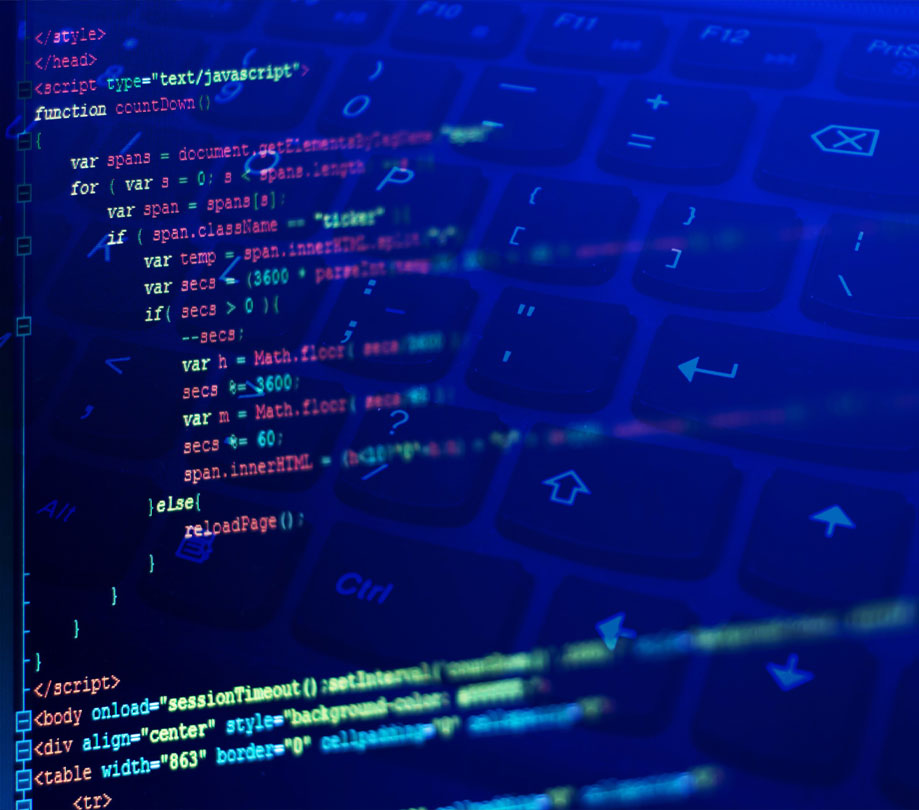Will AI take your programming job
Wednesday, October 4, 2023

|
Freeman Lightner |
Don't worry about losing your coding job to AI. We analyzed the impact of AI on programming jobs and found that it is enhancing the roles of programmers and bringing positive effects to programming jobs, not replacing them. Read more to find out how coders can adapt and thrive with AI.
Some of you might be wondering, is your coding job under threat from AI? It's a question that a lot of programmers are talking about so we conducted an in-depth analysis on its effects on programming jobs to get a concrete answer. Our results revealed how artificial intelligence is influencing programming jobs, whether it replacing programmers or changing their roles, what security risks come with AI's influence on programming jobs, how AI can stifle and enhance programmers' creativity, the adaptation of programming jobs, and much more.
How long has AI been around?
Artificial Intelligence (AI) has been a concept and area of research since the mid-20th century. The term "artificial intelligence" was coined in 1956 at the Dartmouth Conference, which marked the beginning of AI as a formal academic discipline. Early AI research focused on symbolic reasoning and problem-solving.
Over the decades, AI has gone through periods of significant progress and setbacks, often referred to as "AI summers" and "AI winters." AI summers were characterized by rapid advancements and high expectations, while AI winters were marked by reduced funding and disillusionment when AI failed to meet some overly ambitious goals.
Fast forward to 2023, AI and ChatGPT have become household names, and people of all ages are using AI to assist with their jobs, school, and everyday life. AI has truly become an integral part of our daily routines, and if it is not already a part of your programming job, it will most certainly be sooner than later.
Will AI replace your programming job?
While AI has made remarkable advancements in automating various aspects of software development, it's important to understand that the role of a programmer is multifaceted and extends beyond writing code.
AI is a tool that can assist programmers in tasks like code generation, debugging, and testing, which can significantly enhance productivity. It can automate repetitive and routine coding tasks, freeing up programmers to focus on more creative and complex aspects of software development. However, programmers bring essential qualities such as problem-solving skills, creativity, and domain expertise to the table. They design software architecture, make critical decisions, and understand the broader context of the projects they work on.
AI is excellent at working with structured data and patterns but may struggle with less predictable or highly creative tasks. Programming often requires innovative thinking, adapting to unique project requirements, and addressing complex and dynamic challenges. These are areas where human programmers excel and where AI may find it challenging to fully replace human ingenuity.
AI is transforming the programming landscape by automating certain tasks, but it is unlikely to replace programmers entirely. Instead, AI is more likely to augment and enhance the capabilities of programmers, making them more efficient and effective in their roles. The collaboration between humans and AI is likely to be the future of programming, where programmers work alongside AI tools to achieve faster and more innovative results.
According to Hadi Chami, Developer Advocate and manager at LEADTOOLS, "AI models do indeed have the potential to revolutionize the software development and testing industry. However, human intervention will still be required to verify output and make modifications as necessary."

How does AI stifle programmers' creativity?
AI can potentially stifle programmers' creativity by automating routine tasks. When AI takes care of repetitive coding chores, programmers may have less opportunity to explore innovative solutions or experiment with new approaches. Additionally, overreliance on AI-generated suggestions may lead programmers to accept these recommendations without critically evaluating them, potentially limiting their creative problem-solving skills.
How can AI enhance programmers' creativity?
On the flip side, AI has the potential to enhance programmers' creativity by handling mundane tasks and offering valuable insights. With routine coding tasks automated, programmers can focus more on the creative and conceptual aspects of their work. AI-driven tools can provide inspiration, suggest alternative approaches, and even generate prototypes, allowing programmers to explore a wider range of creative solutions to complex problems. By leveraging AI as a creative collaborator, programmers can push the boundaries of what's possible in software development, ultimately leading to more innovative and efficient solutions.

What are the security risks associated with AI's influence on programming jobs?
- Increasing the adoption of AI into programming processes brings with it a set of security risks that programmers need to be vigilant about. Firstly, AI-driven code generation tools, while efficient, can potentially introduce security vulnerabilities. These tools might inadvertently generate code with weak points or vulnerabilities that malicious actors could exploit. Programmers must carefully review AI-generated code to identify and rectify such security issues, ensuring that the automation doesn't compromise the software's integrity.
- AI systems that learn from vast datasets may inadvertently inherit biases present in the data. This can lead to biased decision-making in various applications, including those related to security. For example, an AI-powered security system could exhibit discriminatory behavior or overlook certain threats due to biases in its training data. Programmers must actively address these biases, implement fairness measures, and conduct rigorous testing to prevent AI-driven security solutions from perpetuating or exacerbating existing biases.
- Lastly, the growing complexity of AI-powered security systems can be a double-edged sword. While these systems can detect and respond to threats with speed and precision, their complexity can also make them susceptible to sophisticated attacks. Programmers need to continuously update and secure AI-driven security solutions, making sure they are resilient to emerging threats and vulnerabilities.
AI brings some promising advancements in security to the table, but it also introduces new security risks that programmers must be aware of. Through code review, bias mitigation, ongoing maintenance, and a deep understanding of both AI and cybersecurity principles, programmers can overcome these risks. Programmers can harness the potential of AI, while also safeguarding against potential threats by carefully managing the influence of AI.

How programming jobs are adapting
Programming jobs are on the brink of a transformative shift. As AI and automation take on routine tasks, programmers will evolve into roles that emphasize creativity, problem-solving, and critical thinking. They will become architects, responsible for designing AI systems, ensuring ethical practices, and crafting innovative solutions. The future of programming lies in adapting to these changes, embracing lifelong learning, and working alongside AI to harness its potential, ultimately leading to a more dynamic and innovative industry.
According to a report by the World Economic Forum, by 2025 it is estimated that automation and AI could displace around 85 million jobs but create around 97 million new ones across various industries. This suggests a net positive effect on jobs, but it's important to note that the nature of programming jobs could evolve as AI automates certain tasks and programmers adapt to new roles.
In conclusion, AI's impact on programming jobs is a journey of transformation and opportunity. It's not about job replacement but augmentation, streamlining tasks, refining security, and sparking creativity. While concerns persist, data suggests new opportunities are emerging. Programmers must adapt, remain ethical, and embrace AI's potential for innovation in their programming jobs.

Become a subscriber of App Developer Magazine for just $5.99 a month and take advantage of all these perks.
MEMBERS GET ACCESS TO
- - Exclusive content from leaders in the industry
- - Q&A articles from industry leaders
- - Tips and tricks from the most successful developers weekly
- - Monthly issues, including all 90+ back-issues since 2012
- - Event discounts and early-bird signups
- - Gain insight from top achievers in the app store
- - Learn what tools to use, what SDK's to use, and more
Subscribe here











